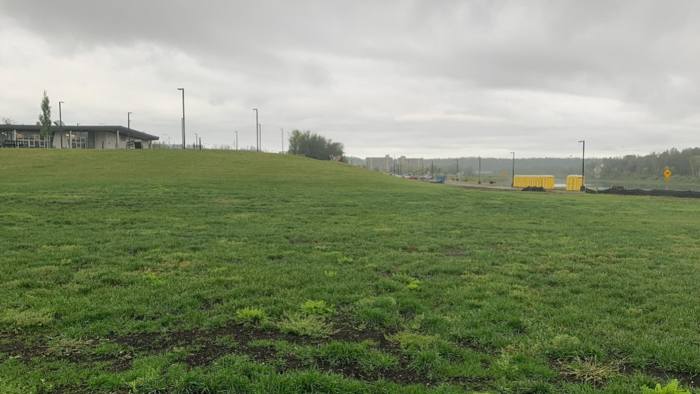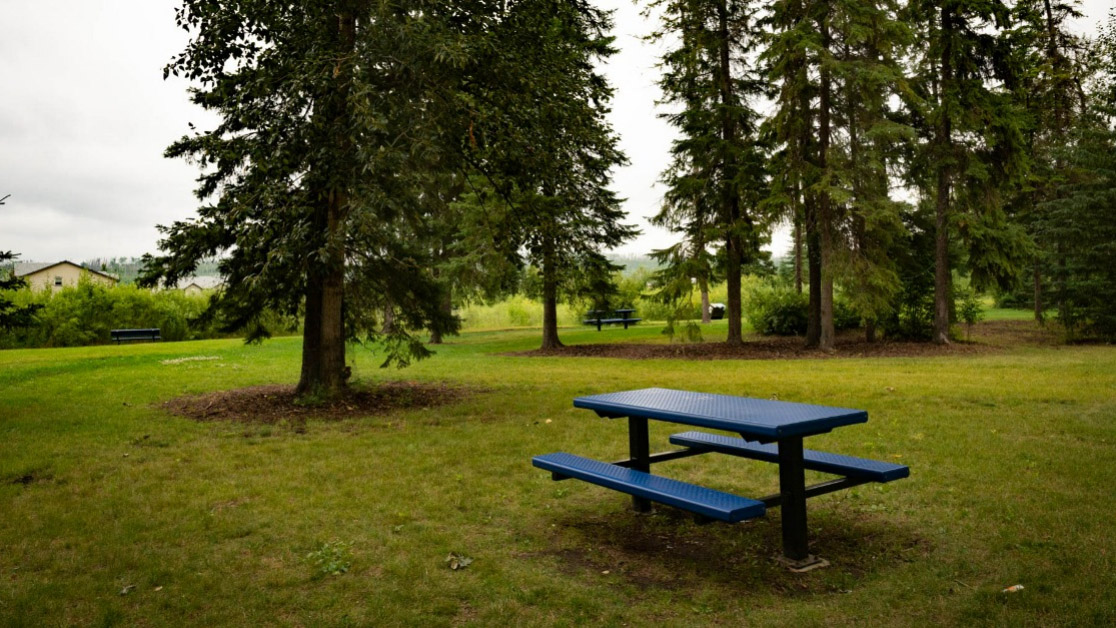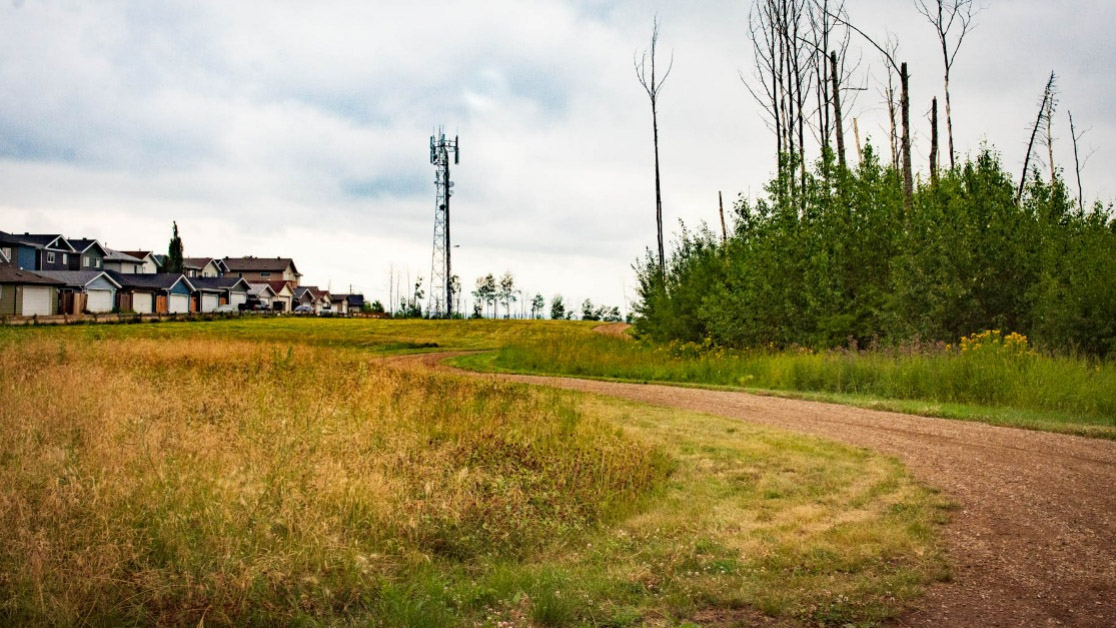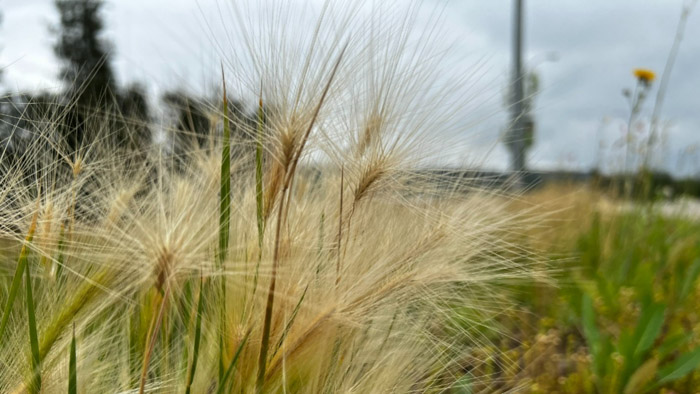
 Examples of Priority 1 areas include:
Examples of Priority 1 areas include:- Heritage Village and Shipyard
- Municipal Cemeteries (3)
- Helen Pacholko Park
- Syncrude Athletic Park
- Timberlea Community Park
- Snye Point Park
This website uses cookies to enhance usability and provide you with a more personal experience. By using this website, you agree to our use of cookies as explained in our Privacy Policy.
Mowing of parks, trails and greenspaces in the Urban Service Area is performed through contracts with third-party service providers. Parks tracks mowing and grass cutting progress and confirms daily reports given by contracted service providers. Areas are prioritized based on the park classification (size, service area and amenities), and the maintenance required for use.
Priority Area 1 locations are high-profile parks (such as regional parks) and receive maintenance on a seven-day cycle. Priority Area 2 locations are addressed on a rotating 14-day cycle.
Beyond Priority Area 1 and 2 locations, the RMWB contracts service providers for mowing and grass cutting for trails, firebreaks, and sports fields. The Birchwood Trails are maintained by RMWB staff.
See overview of mowing in community parks and greenspaces:
Priority 1 Areas: High-profile Parks

 Examples of Priority 1 areas include:
Examples of Priority 1 areas include:
Examples of Priority 2 areas include:

Class 1, 2 and 3 trails are mowed with a buffer of one meter to provide a safe recreational environment and protect assets from plants encroaching into the trail systems. Examples include:

Maintaining these areas more frequently would negatively affect the growth and effectiveness of these assets.
Examples of firebreaks include the areas behind:
Priority 5 Areas: Sportsfields
Class 1 fields are irrigated, sand-based sport fields which require high levels of maintenance. These are typically mowed three times per week and receive boundary lining and grooming.
Class 1 fields include:
Some challenges that come with maintaining the RMWB’s more than 450 hectares of turf are the varying ground conditions, which can be affected by weather, ground water, drainage, private sump pumps, and construction projects. These variables can slow the maintenance process as contracted service providers do not want to damage greenspaces while mowing in fragile or compromised areas.
Foxtail Barley is a perennial grass that is native to the region. It is not designated as a noxious weed by the province, but it can be dangerous to pets. For this reason, the Municipality is working to control foxtail on public property by mowing and weed whipping where it is abundant.
Foxtail thrives in dry, sandy soils, especially where it has reduced competition from other plants.

How can I control foxtail on my property?
Residents who own private property adjacent to a roadway are required to maintain the lawn to the curb. If you have foxtail on your property, there are steps you can take to address it, including:
Please note that foxtail is a grass, and therefore selective broad-leaf herbicides are not an effective treatment.
Danger to pets and how to stay safe
Foxtail usually matures in mid-summer forming barbed seed heads. These can become very dangerous to dogs and other animals as they can get lodged in the skin, mouth, nose, ears and eyes.
If a dog eats these barbed seed heads, they can cause serious illness or even death if left untreated, as they are tough and do not break down in the dog’s digestive tract.
How you can protect your pet from Foxtail:
Unmaintained rights-of-way and privately-owned vacant lots allow for the spread of unwanted weeds and materials to greenspaces and other private property. Property owners are required to prevent the spread of excessive, noxious or prohibited noxious weeds on their property. Likewise, property owners must keep grass below 15 centimeters in height, as stated in the Community Standards Bylaw (No. 21/010
For obvious safety reasons, grass cutting and mowing is paused in areas under construction until the construction activities are completed, inspected, and the area turned back to operations.
If you have a question about grass cutting and mowing in the RMWB, or an issue you want to report, please call PULSE at 780-743-7000 or call toll-free at 1-800-973-9663
Contact Us
PULSE
Submit a request
Phone: 780-743-7000
Toll free: 1-800-973-9663
Subscribe for RMWB updates
Stay up to date on the services, programs and projects in your neighbourhood!